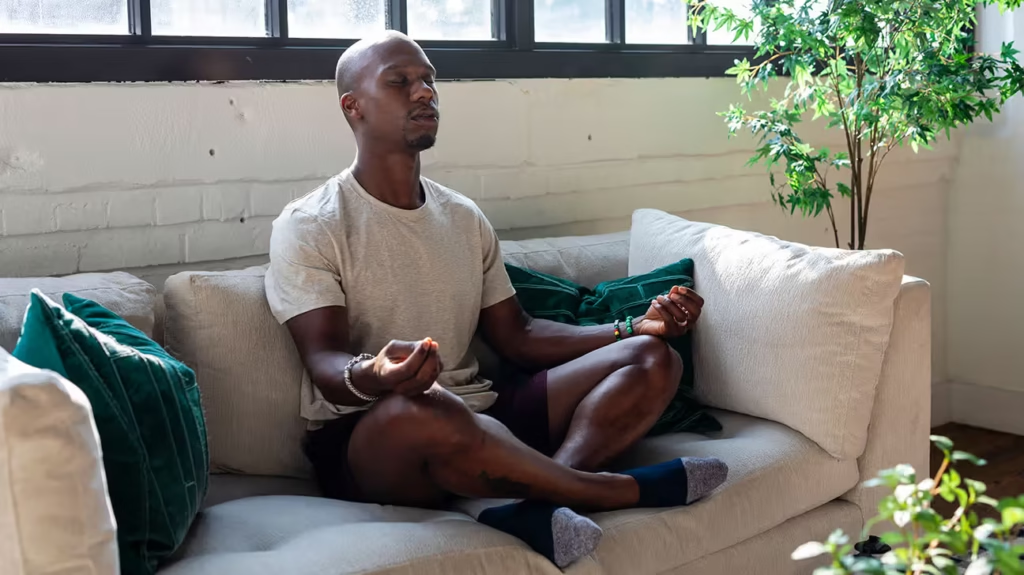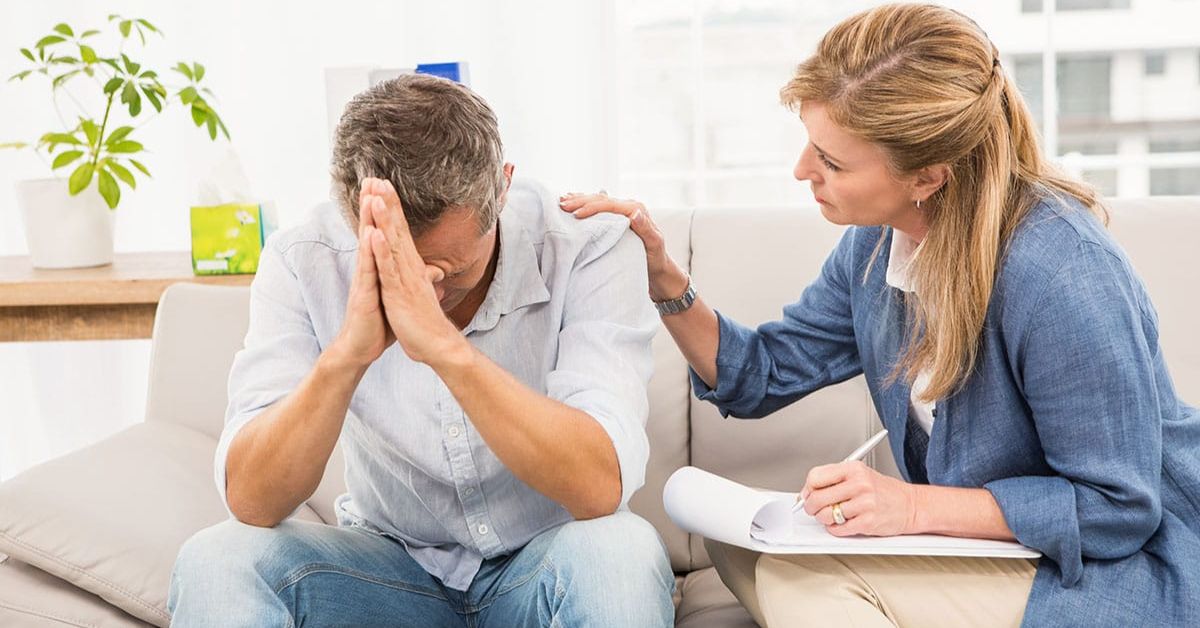Anxiety disorder treatments have become increasingly important as modern lifestyles bring rising mental health challenges. Whether you struggle with generalised anxiety, panic attacks, or social anxiety, there’s hope. Millions of people benefit from treatment options that restore calm, confidence, and control. But the real question remains what works best?
Understanding anxiety is the first step. This condition affects how we think, feel, and behave. It can cause rapid heartbeat, tension, and overwhelming fear, even when there’s no actual threat. Without proper management, anxiety may disrupt relationships, work, and physical health. That’s why identifying the right anxiety disorder treatments is critical to long-term well-being.
This guide explores everything from medications and therapy to natural remedies and lifestyle changes. We’ll break down how each method works, who it suits best, and how to create a sustainable plan that aligns with your needs. Whether you’re newly diagnosed or looking to improve your current strategy, this article offers clarity and direction.
Understanding Anxiety Disorders
Anxiety disorders go beyond daily worries. They include a range of mental health conditions such as:
- Generalised Anxiety Disorder (GAD)
- Panic Disorder
- Social Anxiety Disorder
- Phobias
- Obsessive-Compulsive Disorder (OCD)
- Post-Traumatic Stress Disorder (PTSD)
Each type comes with specific triggers, symptoms, and severity levels. While occasional stress is normal, anxiety becomes a disorder when it’s persistent and interferes with daily life.
Causes can include genetics, brain chemistry, personality traits, or life experiences. Chronic stress, trauma, or health problems may also contribute.
Early symptoms include:
- Constant worrying
- Avoidance behaviour
- Restlessness
- Poor concentration
- Sleep disruption
Diagnosing anxiety typically involves psychological evaluation, symptom tracking, and sometimes lab tests to rule out physical conditions. Once diagnosed, selecting from effective anxiety disorder treatments becomes the next vital step.
Why Treatment Is Important?
Ignoring anxiety can lead to serious consequences. It often worsens over time, leading to:
- Depression
- Substance abuse
- Isolation
- Cardiovascular issues
Anxiety disorder treatments help individuals regain control of their thoughts and emotions. They reduce the frequency and intensity of symptoms and improve quality of life.
Treatment also restores sleep, appetite, focus, and relationships. It lowers the risk of developing related conditions like high blood pressure or chronic fatigue.
Most importantly, anxiety disorder treatments offer hope. They show that anxiety isn’t a lifelong sentence—it’s a condition that can be managed and overcome.
Medical Treatments for Anxiety Disorders
Medical treatment plays a central role for many sufferers. The most common options include:
1. Selective Serotonin Reuptake Inhibitors (SSRIs)
These are the most prescribed medications. They work by increasing serotonin levels in the brain and include fluoxetine (Prozac), sertraline (Zoloft), and escitalopram (Lexapro).
2. Serotonin-Norepinephrine Reuptake Inhibitors (SNRIs)
These regulate both serotonin and norepinephrine. Examples include venlafaxine (Effexor) and duloxetine (Cymbalta).
3. Benzodiazepines
Used for short-term relief, they calm the nervous system quickly. However, due to the risk of dependence, they’re usually not a long-term solution. Diazepam and alprazolam are common examples.
4. Beta-blockers
These control physical symptoms like rapid heartbeat and shaking. Ideal for performance anxiety or social fears.
5. Tricyclic Antidepressants
Older but effective for some cases. They have more side effects but may help when SSRIs fail.
Consult a psychiatrist before starting medication. Dosing, side effects, and follow-up are critical. Medication often works best alongside other anxiety disorder treatments like therapy or lifestyle changes.
Psychotherapy and Counselling Approaches
Talking therapies are a pillar of anxiety disorder treatments. They help individuals uncover the root of their fears and reframe negative thoughts.
1. Cognitive Behavioural Therapy (CBT)
CBT is the gold standard. It identifies negative thought patterns and replaces them with healthier responses. It’s structured, practical, and highly effective.
2. Exposure Therapy
Ideal for phobias and OCD, this method gradually introduces the person to their fear, helping desensitise and reduce the anxiety over time.
3. Dialectical Behavioural Therapy (DBT)
This combines CBT with mindfulness and emotional regulation strategies. It’s excellent for people with intense emotions or trauma.
4. Group Therapy
Sessions with others facing similar struggles reduce isolation and promote shared learning. Led by trained professionals, these can be incredibly healing.
5. Family or Couples Therapy
When anxiety affects home life, involving loved ones creates mutual understanding and support.
Therapy sessions are usually weekly and last 45–60 minutes. Consistency is vital. Even after symptom improvement, continued therapy can prevent relapse.
Natural and Holistic Remedies for Anxiety Disorder Treatments

When it comes to anxiety disorder treatments, not everyone turns first to medication or therapy. A growing number of individuals now explore natural and holistic remedies to manage symptoms in a gentler, often side-effect-free way. These alternatives are especially popular for those looking to supplement their medical or therapeutic plans or for people dealing with mild to moderate anxiety.
Let’s look at five proven, natural methods that are safe, effective, and supportive of comprehensive anxiety disorder treatments.
1. Herbal Supplements
Certain herbs have long been recognised for their calming effects. Ashwagandha is one of the most widely studied herbs used in anxiety disorder treatments. It helps regulate cortisol levels the stress hormone and supports overall mood balance.
Other herbs like valerian root, passionflower, and lavender promote relaxation and can be taken in tea, capsule, or tincture form. Lavender, in particular, is noted for its gentle sedative properties and is often found in sleep and anxiety blends. However, it’s essential to consult a healthcare provider before combining these herbs with prescription medication, as interactions may occur.
2. Aromatherapy
Aromatherapy is one of the most accessible natural anxiety disorder treatments available. It involves the use of essential oils highly concentrated plant extracts that influence brain chemistry and emotions through scent.
Scents like chamomile, bergamot, and sandalwood are proven to have calming effects. Diffusing these oils in your living space, adding a few drops to a warm bath, or applying them (diluted) to pulse points can ease symptoms like nervousness and restlessness. This remedy works well when combined with deep breathing or meditation.
3. Acupuncture
This traditional Chinese practice has gained global recognition in recent years as an effective part of holistic anxiety disorder treatments. Acupuncture involves the gentle insertion of fine needles at specific points of the body to stimulate energy flow and balance emotional health.
It’s believed to activate the parasympathetic nervous system, which helps the body “rest and digest,” counteracting the body’s stress response. Several studies support acupuncture as a reliable technique for reducing chronic anxiety and improving mood without pharmaceutical drugs.
4. Massage Therapy
Massage is more than just a luxury it’s a science-backed anxiety disorder treatment method. Therapeutic massage helps reduce muscle tension, lower heart rate, and release hormones like dopamine and serotonin, which are linked to well-being.
Regular sessions, even just once or twice a month, can significantly ease anxiety symptoms. It also improves sleep and encourages mindfulness by helping individuals reconnect with their bodies. This makes it a powerful companion to other treatments like counselling or yoga.
5. Mindfulness Meditation
Mindfulness meditation is perhaps the most effective of all natural anxiety disorder treatments. It teaches you to be fully present, calmly observe your thoughts without judgment, and detach from spiralling worries.
Just 10 to 15 minutes of daily mindfulness practice has been shown to reduce anxiety levels, boost emotional regulation, and improve sleep. Guided meditations, mindfulness apps, or silent breathing practices can all be used at home.
Lifestyle Changes to Reduce Anxiety
Small daily habits can make a huge difference:
- Exercise: Boosts endorphins and reduces cortisol. Aim for 30 minutes, five days a week.
- Sleep: Poor sleep increases anxiety. Maintain a consistent bedtime routine.
- Diet: Cut down on caffeine, alcohol, and sugar. Eat more magnesium-rich and omega-3 foods.
- Hydration: Even mild dehydration can trigger anxiety symptoms.
- Digital Detox: Reduce screen time, especially social media, which can trigger comparisons and stress.
Creating a calming daily routine is a powerful part of anxiety disorder treatments.
Coping Strategies and Daily Techniques
Use these tools to manage symptoms on tough days:
- Breathing Techniques: 4-7-8 breathing, box breathing, and diaphragmatic breathing calm the nervous system.
- Grounding Exercises: Techniques like the 5-4-3-2-1 method bring your focus back to the present.
- Positive Affirmations: Repeating phrases like “I am safe” or “This will pass” helps retrain your brain.
- Journaling: Write about fears and wins. It helps gain perspective.
- Break Tasks: Large projects become less overwhelming when split into smaller steps.
- Support Network: Stay connected with friends, family, or online groups.
Challenges in Treatment and How to Overcome Them
Barriers may include:
- Stigma: Many still view mental health as a weakness. Education helps combat this.
- Cost: Therapy and medication can be expensive. Explore insurance, community clinics, or online therapy platforms.
- Time: People with busy schedules often skip care. Prioritising mental health is crucial.
- Lack of Immediate Results: It takes time for most anxiety disorder treatments to show effects. Patience is key.
Solutions lie in planning, support, and being honest with professionals about what’s working or not.
FAQs:
Q1. What is the most effective treatment for anxiety disorders?
The most effective treatment is a combination of cognitive behavioural therapy (CBT) and medication such as SSRIs. Personalised plans work best.
Q2. Can anxiety disorders be cured completely?
While they may not be permanently cured, anxiety disorders can be effectively managed with consistent treatment, lifestyle changes, and support.
Q3. Are natural remedies helpful for anxiety?
Yes. Natural options like ashwagandha, meditation, aromatherapy, and magnesium-rich diets can support anxiety disorder treatments when used safely.
Q4. How long does anxiety treatment take to work?
It depends on the individual. Medications may take 4–6 weeks to show full effects, while therapy often yields improvements within a few sessions.
Q5. Can exercise help reduce anxiety symptoms?
Absolutely. Regular physical activity boosts endorphins, reduces cortisol, and is proven to ease symptoms of anxiety and improve overall mood.
Q6. Is online therapy effective for anxiety disorders?
Yes. Online therapy platforms offer accessible and effective treatment for anxiety, especially CBT-based programs guided by certified therapists.
Must Read:
Final Words:
Anxiety doesn’t define you. With the right treatments, it’s entirely possible to regain control, enjoy life again, and even thrive. Whether you choose medical, therapeutic, or holistic approaches, remember that every small step counts.
Building a treatment plan takes time and may involve trial and error. Start with what feels manageable. Add on as you go. Work with your healthcare team to customise your approach.
Consistency matters more than intensity. The best anxiety disorder treatments are those you can stick with over time. Regular practice whether it’s breathing exercises or weekly therapy yields long-term results.
Don’t hesitate to ask for help. Millions of people share your journey. Support is available, and progress is real. Anxiety may be persistent, but so is your strength. With treatment, hope becomes reality.
